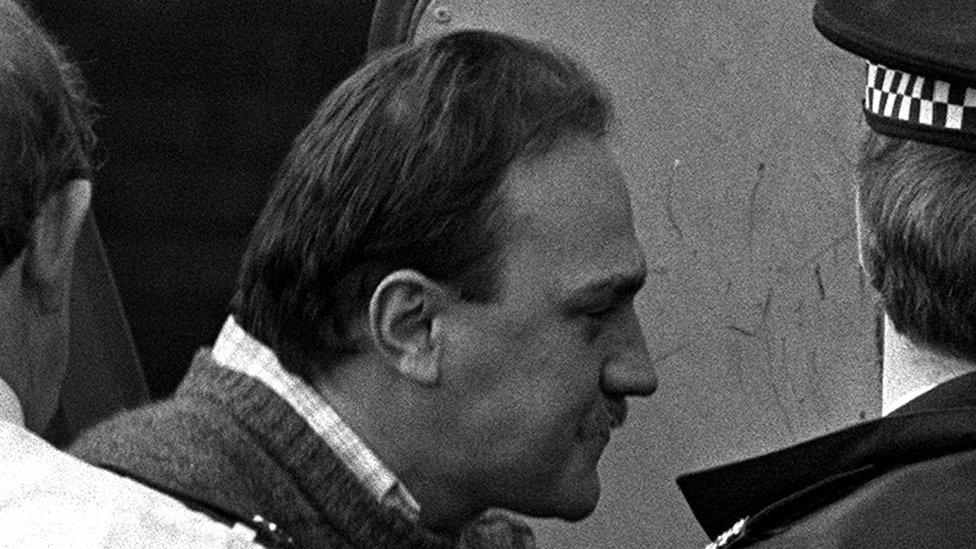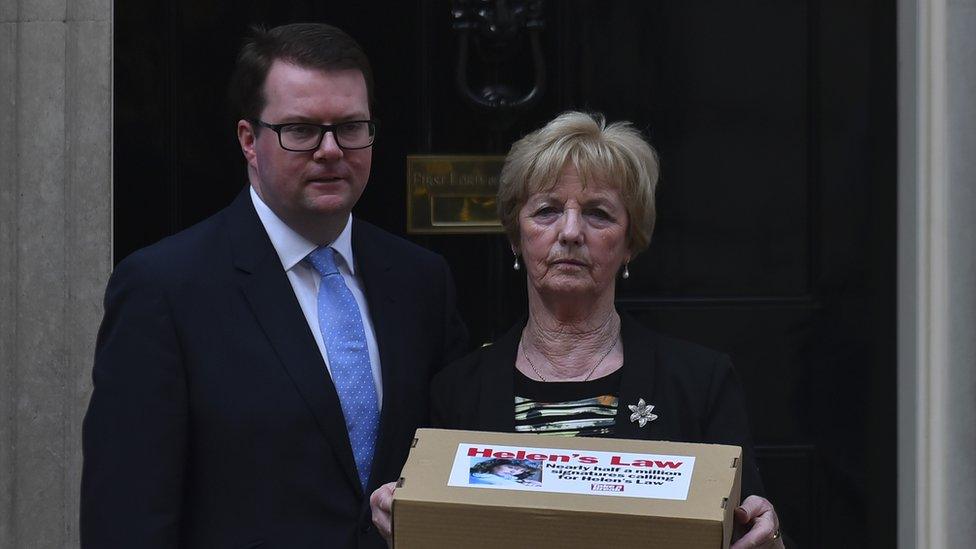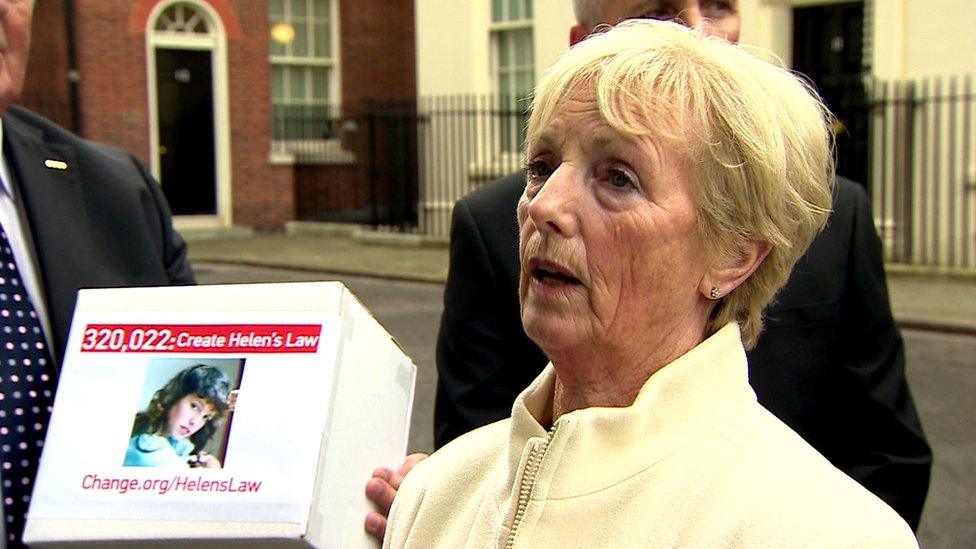Helen's Law: Killers who conceal victims' remains face parole refusal
- Published

Helen McCourt was killed in 1988 after leaving work
Murderers who refuse to reveal the location of their victims' bodies could be denied parole under a new law.
"Helen's Law" follows a campaign named after Helen McCourt, who was murdered in 1988. Her killer Ian Simms has not revealed the location of her remains.
Justice Secretary David Gauke has confirmed the law will be adopted in England and Wales.
Ms McCourt's mother Marie said the impact of her daughter's death was "a pain in your heart that will never go".

Marie McCourt said bereaved relatives "deserve to say a last goodbye"
"It's hard to lose a loved one in any circumstances, but to have them murdered is horrific," she told BBC Breakfast.
"But then not to have their remains to be able to go and put flowers on, it's a grief that can't come out of you.
"I could say I've had a dripping tap for on my head for the last 31 years. It's far worse than that, it's a pain in your heart that will never go.
"Families deserve to say a last goodbye and know where their loved one is going to be resting."

Ian Simms, seen here in 1988, was jailed for murder
Ms McCourt, aged 22, disappeared in February 1988 on her way home from her work as an insurance clerk.
Simms, who owned a pub close to her Billinge home in Merseyside, quickly became a suspect.
He was convicted of murder after blood and an earring - identical to one belonging to her - were found in his car boot.
Simms has never revealed the location of her remains, claiming he is innocent.
He was jailed for life in 1989 and told he would have to serve at least 16 years before he could be considered for parole.
'I hope one day I will know'
Nearly 600,000 people signed a petition, external, launched in 2015, calling for the introduction of "Helen's Law" to block parole for killers who concealed the whereabouts of their victims' bodies.
Mrs McCourt, who is still involved in searches for her daughter, said: "It has been a terrible stress on me since I started the petition in 2015. This law will help so many other families."
She thanked signatories for their support, saying she still wanted Simms to tell her where her daughter's remains were.
"I wrote to him, begging him 'please, please just tell me and you will not hear from me again'," she said.
"I still hope he will remain in prison until he tells me. I hope one day I will know."

Helen's Law campaign

MP Conor McGinn and Marie McCourt presented a petition at Downing Street in 2018
In 2016, MPs voted in favour of the introduction of "Helen's Law"
In 2017, Justice Minister Phillip Lee said such a move risked creating "perverse incentives" for murderers to lie about the burial places, causing further "unthinkable" pain for victims' families
The Ministry of Justice says Parole Board guidance is "already clear" that offenders who withhold information could face a longer imprisonment but "Helen's Law" will, for the first time, make it a legal requirement to consider this concealment when making a decision on whether to release an offender

The government's confirmation of plans for the law follows a meeting between Mrs McCourt and Mr Gauke in May.
Mr Gauke said: "'Helen's Law' will mean that the Parole Board must consider this cruelty when reviewing an offender's suitability for release, which could see them facing longer behind bars."
A Ministry of Justice spokesman added: "The government is acting to acknowledge the particular anguish faced by families who do not have the chance to lay their loved ones to rest."
Former chief prosecutor Nazir Afzal said: "What Helen's Law will say is that it's now a legal requirement for the Parole Board to take it into account, which potentially means her killer will never see the light of day unless he reveals where she is and that is a significant change."
Mrs McCourt's local MP Conor McGinn praised her "dignity and determination", adding: "This is a good day for British justice."
- Published17 May 2019

- Published11 October 2016

- Published4 February 2016

- Published14 December 2015
